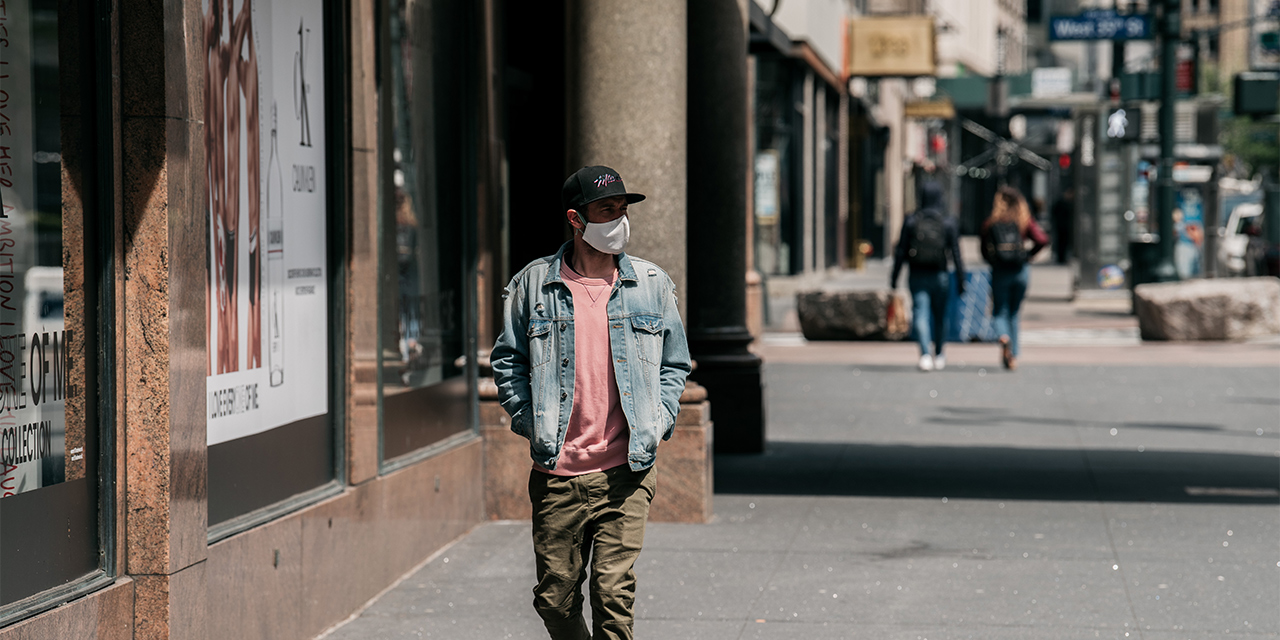Neither Mayor Bill de Blasio nor the City Council understands the scope of the current fiscal crisis: a potential 25 percent loss in the city’s private-economy jobs base and an unknown contraction in Gotham’s tax base.
The mayor is closing swimming pools, and the council is planning drastic new restrictions on private-sector jobs. Instead, they should concentrate on four steps to bring the economy — and people — back.
New York has seen sudden, massive crises before — twice already in the new century, on 9/11 and after the 2008 financial crisis. This isn’t like those. In modern history, New York has never lost more than 6 percent of its private-sector jobs.
This time, with major parts of the private economy, from restaurants to Broadway, shut down entirely, and layoffs trickling up to higher-income workers, the city could lose a million jobs, or one of every four.
Nor does New York benefit from long-term trends that once worked in its favor. After 9/11 and the financial crisis, young people and immigrants still flocked to city living. For the past three years, the city has been losing population.
New York benefited from relentless global tourism. But nobody knows when borders will reopen — or how consistently they’ll stay open.
Of a projected $66 billion in tax revenue for the upcoming fiscal year, which starts July 1, the city, based on job and income losses, is likely to see a loss of more than $10 billion, twice as bad as after the financial crisis, even after accounting for inflation, and far more than any elected official is estimating. (The remainder of the city budget is funded by state and federal grants.)
The plummeting of sales, income and hotel taxes is self-explanatory. But the city’s traditionally stable $31 billion property-tax intake could shrink, as owners ask for reassessments in light of the cessation of substantial economic activity.
Raise taxes — as the city did after 9/11 and 2008? Sure, and give tens of thousands of people who have decamped an excuse not to come back.
So what should the city do? First, the City Council and the mayor should announce a holiday on sales taxes through the end of the 2020 calendar year; the state should follow.
In doing so, the city and state will forfeit revenue, yes. But they will also send a signal to businesses of all sizes: Once New York is open again, diners and shoppers will enjoy a nearly 9 percent discount on their purchases.
For now, the city and state would forfeit largely theoretical tax revenue. Longer term, the state’s congressional delegation should partner with hard-hit red states, including Louisiana and Florida, to ask the federal government to fund a sales-tax holiday, hopefully through next year.
Second, the city should eliminate its tax on commercial rent, too, and forfeit another theoretical $1 billion. The city’s retailers and restaurateurs can’t afford this burden.
How to pay? Third, lawmakers must strip down the city’s five-year, $79 billion capital budget. New York can’t move forward with its plan to build four new jails in four separate boroughs at a cost of nearly $9 billion, for example.
Rebuilding jails on Rikers would be cheaper and faster and also doable — and more humane for inmates.
Last, Gotham must freeze government wages. The wage bill, pre-COVID-19, was slated to rise from $30.1 billion for the current fiscal year to $32.3 billion by 2024. New York can no longer afford such increases.
Municipal workers can’t be spared the carnage the economy is suffering. The city has no choice but to lay off civilian workers who can’t work at home, such as hundreds of school nurses, and hire them back later. That’s what expanded federal unemployment insurance is for.
None of these actions will solve the problems New York faces. The city (and state) need billions, and potentially tens of billions, in federal aid. It’s either that, or risk defaulting on our municipal debt as we protect basic services such as policing and sanitation.
No elected official is showing he understands these realities. The mayor still hasn’t called for a wage freeze. The City Council is considering bills that harm small business, such as a bill requiring employers with more than 100 workers to pay their “essential employees” a huge hourly hazard-pay premium. Nice idea —but the stores will close.
The New York that reopens will be different than the New York that closed down — and the city must acknowledge these realities.
This piece first appeared at the New York Post
______________________
Nicole Gelinas is a senior fellow at the Manhattan Institute and contributing editor at City Journal. This piece was adapted from City Journal. Follow her on Twitter here.
This piece originally appeared in New York Post
